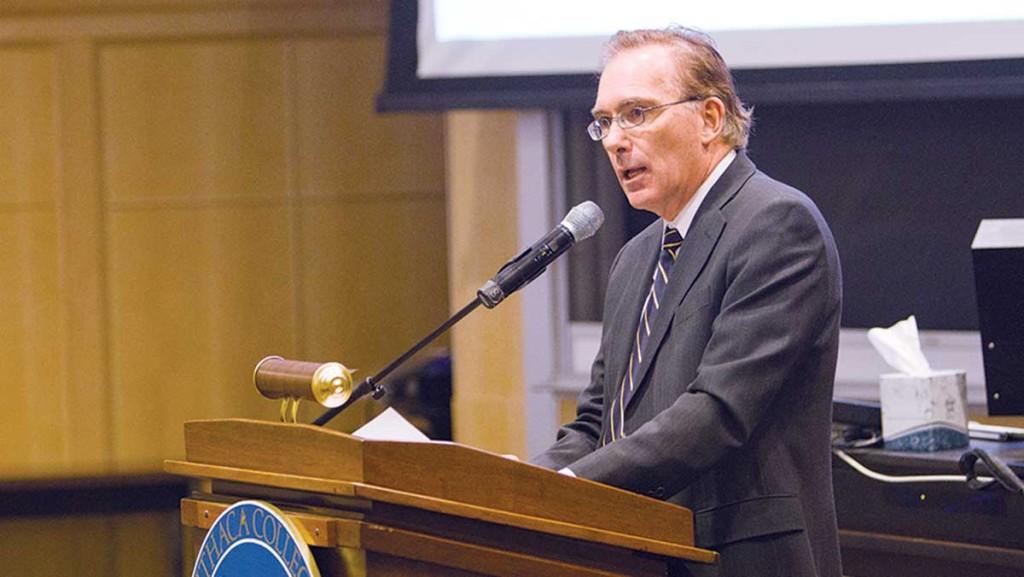Some supporters of the union organizing effort at Ithaca College have expressed surprise and disappointment that the administration is unwilling to be “neutral” on the subject. I, too, am surprised, but in the opposite direction. My surprise is that anyone connected with an institution of higher learning would demand or expect restrictions on the free flow of information.
First, a definition: “Neutrality” in this context means that the administration would be completely silent during the coming weeks while part-time and adjunct faculty gather information and determine how they wish to vote on the question put before them on union representation. As explained to me by the part-time faculty leading this effort, the only messages would come from the union itself. There would be no administration statement of views, no provision of facts, no correction of any misstated claims that might be made by others. We would be mute. We would be silenced.
When I was asked by union organizers April 15 to commit that the administration would maintain neutrality under this definition, I responded that we would not and could not be neutral. I offered specific examples of the kind of information we would share with part-time faculty — examples that can now be found on the website we created. Instead of silence, I committed the administration to a respectful and fact-based dialogue, a commitment I believe we have upheld.
The moral foundation of an academic community rests on the free flow of information and thought. Critical analysis and independent thought require access to multiple perspectives. The remedy for partial information is always more information. Agree to neutrality? I would never sell out the core values of the academy in that way.
In the context of the upcoming union election, I believe it is our responsibility as an employer to provide access to facts so that employees in the eligible voting unit can make a fully informed decision. To do otherwise, especially on such a critically important issue, is not consistent with our academic mission or the best interests of part-time and adjunct faculty.
The Service Employees International Union is well within its rights to campaign in favor of its own views, and I would not expect the union’s professional organizers to offer a point of view other than their own.
As we have said from the beginning, it is our preference that our part-time and adjunct faculty continue to maintain a direct working relationship with the college rather than bring a third party into that relationship. The Ithaca College Union Choice website, www.ithaca.edu/unionchoice, will therefore continue to share announcements and other material that we believe are helpful to those voting in the union election as well as to all of our faculty, staff and students.
Ultimately, it is up to the individual voters — not the administration or the Service Employees International Union — to decide which option best serves their interests as faculty at IC. Whatever your position is on this issue, if you are among those eligible to vote we strongly encourage you to do so. The outcome of the election could have significant ramifications for the college and is too important to be decided by a minority of those empowered with this choice.
If you are an interested spectator rather than a voter, and again regardless of your position on the issue, I urge that you support an election process that conforms to our shared values of full information, independent thought and uncoerced action.
Tom Rochon is the president of Ithaca College. Email him at [email protected].














